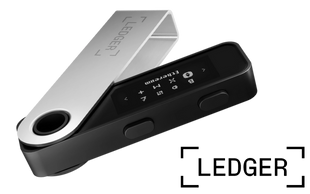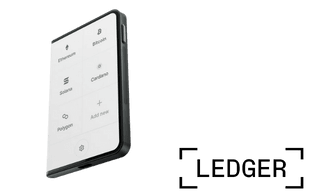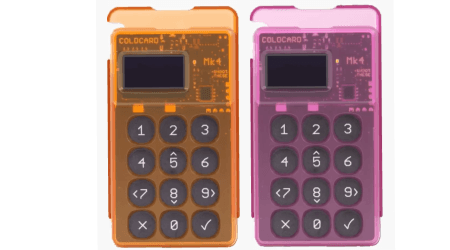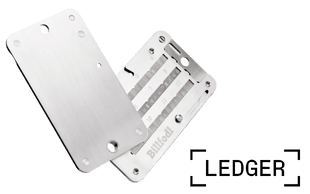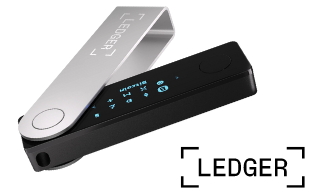
Each year, we conduct an extensive review of the best hardware wallets available in Australia. To arrive at our picks, we review the best hardware wallets on the market for overall safety, functionality, cost and supported digital assets — including coins, tokens and NFTs.
Best hardware wallets in Australia for 2026
- Ledger Nano X – Best hardware wallet overall
- Ledger Nano S Plus – Best value hardware wallet
- Ledger Flex – Best hardware wallets for staking
- Ledger Stax – Best-designed hardware wallet
- Trezor Safe 3 – Best hardware wallet for Bitcoin
- Blockstream Jade – Best wallet for Bitcoin Layer-2 assets
- Billfodl – Bonus: Best recovery phrase backup device
You've probably noticed that brands like Ledger and Trezor dominate our list of the best hardware wallets and have done for the last few years.
These companies created some of the first-ever cold storage wallets and each has a long track record of producing devices that have successfully protected customers' assets.
This isn't to say that other hardware wallets can't offer suitable security and cold storage functionality.
Due diligence is especially important regarding crypto self-custody, so we've chosen only to showcase wallets that our team has first-hand experience with or that meet our strict criteria for inclusion.
This is not an endorsement of cryptocurrency or any specific provider, service or offering. It is not a recommendation to trade or use any services.
Find a crypto hardware wallet
Here you can compare the most popular crypto hardware wallets by price and number of supported coins.
1. Ledger Nano X — Best hardware wallet overall
Ledger Nano X Wallet
Finder score
Price (USD)
Assets
Wallet type
The Ledger Nano X is the top-tier USB-style hardware wallet from Ledger, a company that has produced industry-leading security for self-custody of digital assets since 2014.
It remains our pick for the best overall hardware wallet again in 2025 and for good reason. It's a great balance of price, features and convenience.
You can securely store the keys to over 5,500 crypto assets and NFTs and put your assets to work through staking — all while on the go.
Unlike Ledger's cheaper Nano S Plus model, the Nano X has Bluetooth functionality and is compatible with both Android and iPhone for maximum portability.
Of the hardware wallets we compared, no other device provided this level of security alongside such a broad range of features at a competitive price.
Mind you, while Ledger devices have not had any recorded security breaches, the software is closed-source. This means that it is not open to independent scrutiny, and you must place some degree of trust in the manufacturer.
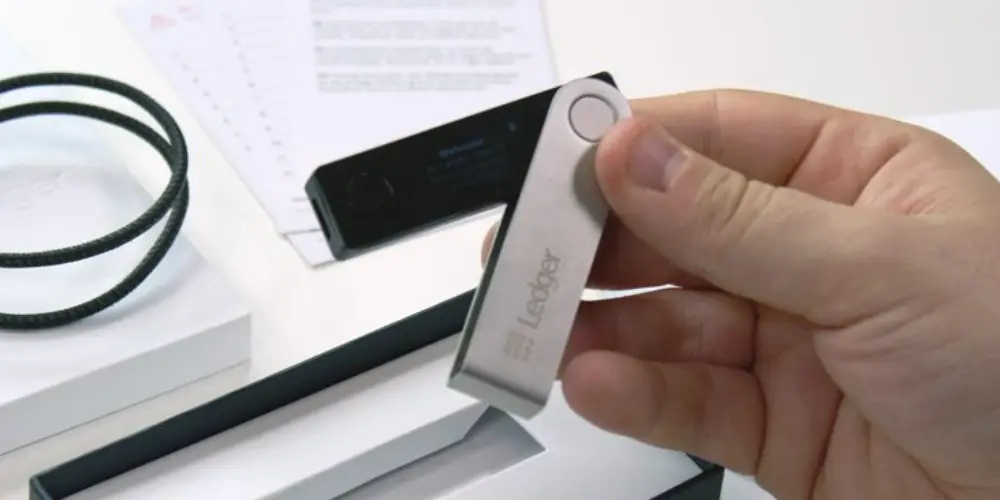
- Manage over 5,500 crypto assets
- Run up to 100 blockchain apps simultaneously
- Highly secure - no Ledger device has ever been hacked
- Can be synced with third-party wallets like MetaMask to use with DeFi apps
- Android and iOS compatibility
- Bluetooth functionality
- Pricier than alternatives
- Can't stake many cryptos via Ledger Live
- Closed-source software
2. Ledger Nano S Plus — Best value hardware wallet
Ledger Nano S Plus Wallet
Finder score
Price (USD)
Assets
Wallet type
The Ledger Nano S Plus is our top pick for best value because it offers the same high level of security and most of the same features as the Ledger Nano X — but at nearly half the price.
The Nano S Plus also supports cold storage for 5,500 crypto coins, tokens and NFTs, as well as staking and crypto exchange features through Ledger Live.
If you're content with safe offline storage of your private keys and don't need to use the device on the go with a mobile phone app – there's no Bluetooth functionality in the Nano S Plus – then this hardware wallet will likely tick a lot of boxes.
One potential issue with Ledger devices is that the software is closed-source, which means it is not open to independent scrutiny or review.
The Ledger Nano S Plus strikes such a good balance between security, coin support, features and relative affordability that we were hard pressed to find a better value option on the market.
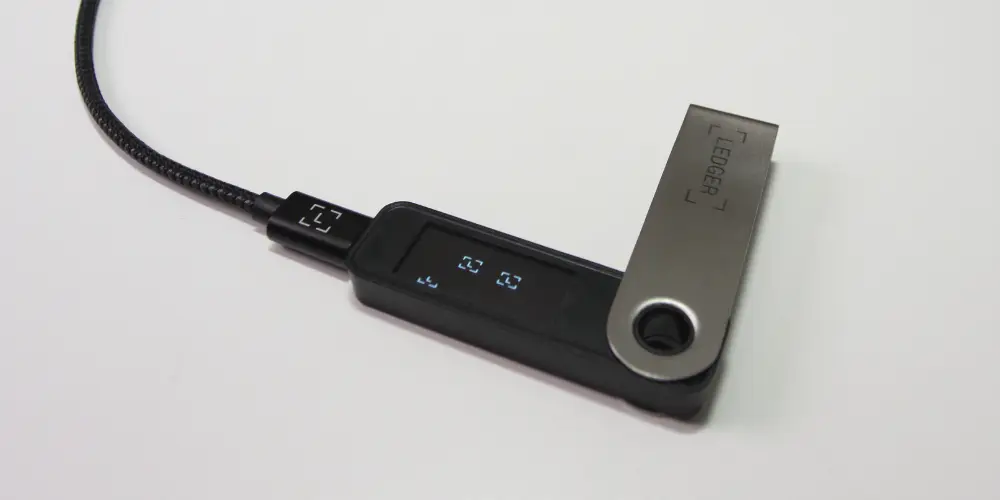
- Manage over 5,500 crypto assets
- Run up to 100 blockchain apps simultaneously
- Highly secure - no Ledger device has ever been hacked
- Can be synced with third-party software like MetaMask
- Stores the private keys to NFTs
- Can't stake many cryptos via Ledger Live
- Not compatible with iOS
- Closed-source software
3. Ledger Flex – Best hardware wallet for staking
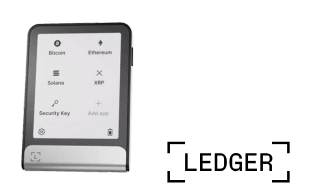
Ledger Flex Wallet
Finder score
Price (USD)
Assets
Wallet type
Ledger is arguably the best hardware wallet provider for staking, and the Ledger Flex is the pick of the bunch.
With support for more than 50 third-party wallets and 5,000+ coins, and stake coins like Ethereum (ETH) and Polkadot (DOT) using th native Ledger Live software.
You can also stake over 25 cryptocurrencies through third-party integrations, including crowd favourites like Avalanche (AVAX) or Solana (SOL) as well as 1,000+ DeFi protocols.
With the next-gen E Ink touchscreen, it's a much more polished and user-friendly experience compared to the Nano S Plus and Nano X.
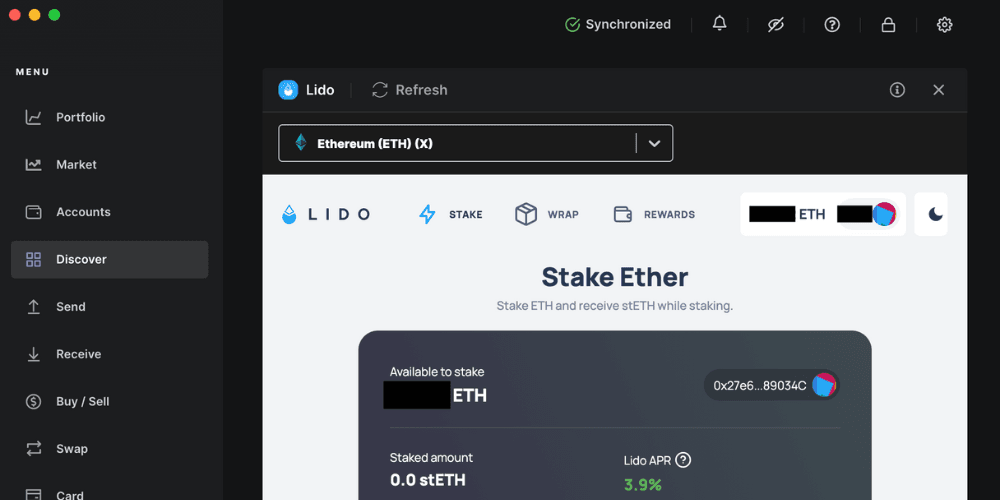
- Impressive touchscreen
- Native staking
- Ledger Live is easy to use
- Only some cryptos can be staked via Ledger Live
4. Ledger Stax – Best-designed hardware wallet
Ledger Stax Wallet
Finder score
Price (USD)
Assets
Wallet type
The top-of-the-line Ledger Stax was created by Tony Fadell – the co-creator of the iPod and iPhone.
The device is just as secure as previous Ledger hardware wallets, but it's more stylish and was designed with everyday users in mind – not just tech geeks.
The stand-out feature of the Ledger Stax is its 3.7in (672x400px) electronic ink (e-ink) touchscreen, which makes managing your assets and clear-signing transactions via the device easy and convenient.
Other features that separate it from previous iterations of Ledger wallets include the fact that you can charge the device wirelessly and customise the lock screen with one of your NFTs.
The device is the size and shape of about 5 credit cards stacked on top of one another, whereas previous Ledger hardware wallets resembled a flash drive.
One potential issue with Ledger devices is that the software is closed-source, which means it is not open to independent scrutiny or review.

- Large e-ink touchscreen
- Wireless Qi charging
- Bluetooth-enabled
- Enables clear-signing (to prevent hacks and phishing attacks)
- CC EAL 5+ security certification (highest level of security against penetration tests)
- Lock screen can be customised with NFTs
- Strong casing
- Sleek design
- Most expensive Ledger hardware wallet
- Can't stake many cryptos via Ledger Live
- Closed-source software
5. COLDCARD Mk4 — Best hardware wallet for Bitcoin
COLDCARD Mk4
Price (USD)
Assets
Wallet type
As a specialist Bitcoin hardware wallet, the COLDCARD Mk4 doesn't have as many of the features of Ledger or Trezor devices, but it does keep the private keys to your BTC stored securely offline.
The COLDCARD Mk4 was created by cypherpunks — technologists who advocate for privacy-enhancing cryptography — for Bitcoin minimalists.
Like Ledger hardware wallets, the COLDCARD Mk4 uses a Secure Element chip — the same type of chip found in passports and credit cards — to protect the private keys to your Bitcoin.
Using the Sparrow Wallet desktop software and a microSD card, you can send Bitcoin to and from your COLDCARD Mk4 without ever plugging the device in. The obvious downside to this is that you'll have to purchase a microSD card adapter for your computer if you plan to transfer data this way.
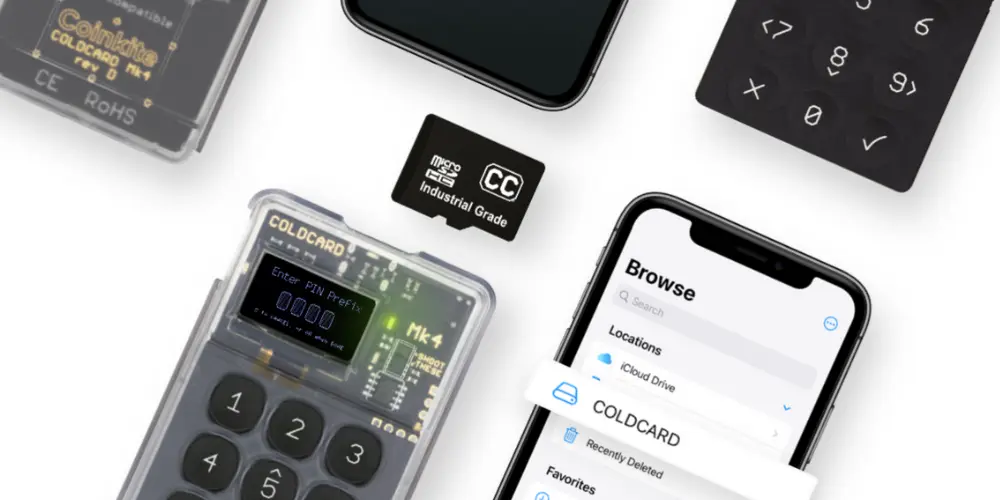
- Highly secure
- Contains 2 Secure Element chips sourced from different manufacturers
- Doesn't require a connection to computer
- Features a high-contrast 128 x 64 pixel screen for messaging
- Multisig enabled
- Only supports BTC
- The user interface for Sparrow Wallet is less intuitive than competitor alternatives
- You will have to purchase a microSD card adapter for your computer if you prefer to transfer data via the card
6. Blockstream Jade — Best for Bitcoin Layer 2 assets
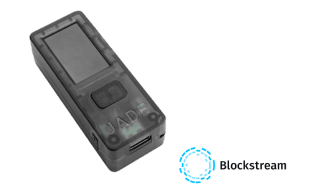
Blockstream Jade
Price (USD)
Assets
Wallet type
Blockstream is involved in many Bitcoin-related endeavours from Bitcoin mining to the development of the Liquid Network — a Layer 2 on Bitcoin for digital asset issuance.
Given its extensive experience with the Bitcoin network, it's no wonder that the Blockstream Jade is one of the most respected hardware wallets in the Bitcoin community.
Like the COLDCARD Mk4 — another beloved Bitcoin hardware wallet — the Blockstream Jade is a secure Bitcoin cold storage wallet designed with open-source code and multisig capabilities.
But the Blockstream Jade differs from the COLDCARD Mk4 in a number of ways including:
- Blockstream Jade supports assets like Tether (USDT) on the Liquid Network
- Blockstream Jade has native software: Blockstream Green
- Blockstream Jade is significantly cheaper
The device also doesn't have a Secure Element chip — the primary security mechanism for the COLDCARD Mk4 and Ledger wallets.
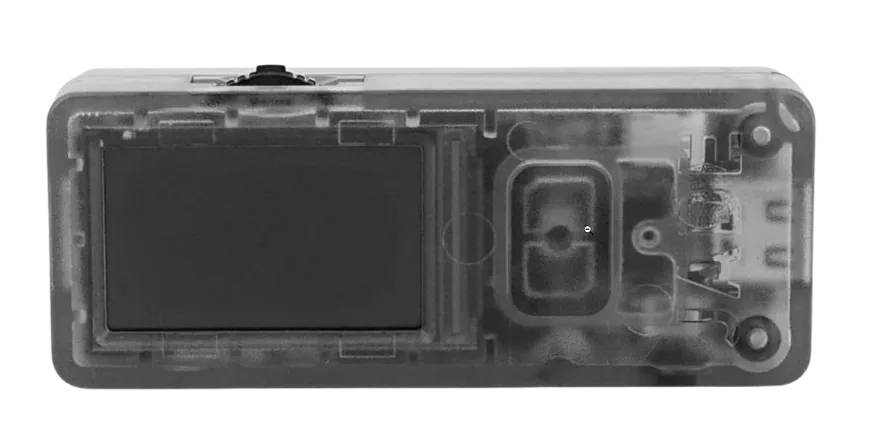
- Developed by a seasoned team that specialises in securing Bitcoin
- Affordably priced
- Multisig support
- Air-gapped with a built-in camera for QR code scanning
- Open-source hardware and software code
- Supports remote blind server authentication as a security mechanism
- Bluetooth-enabled
- Offers passphrase protection (a level of security on top of your seed recovery phrase)
- No support for blockchains other than Bitcoin
- No Secure Element chip
- Bluetooth only works with iOS mobile devices
Bonus: Billfodl — Best recovery phrase backup device
Billfodl
Price (USD)
Assets
Wallet type
We chose to give Billfoldl an honourable mention as the best recovery phrase backup device because it helps protect your chosen hardware wallet's recovery phrase from fire, flooding and any type of decay.
Most hardware wallets will prompt you to write down your recovery phrase on a sheet of paper when you set up your wallet. But if your recovery phrase sheet gets damaged or lost, you can lose access to your crypto – permanently.
Billfodl is a solid steel case that allows you to stamp your 24-word recovery phrase using metal tiles engraved with letters.
The tiles slide into three different rows on both sides of the device, and the device comes with a cover that swivels over your recovery phrase once you've properly arranged the tiles.
It's worth considering the added layer of security and peace of mind afforded by recovery phrase backup devices like Billfodl if you invest in a hardware wallet.
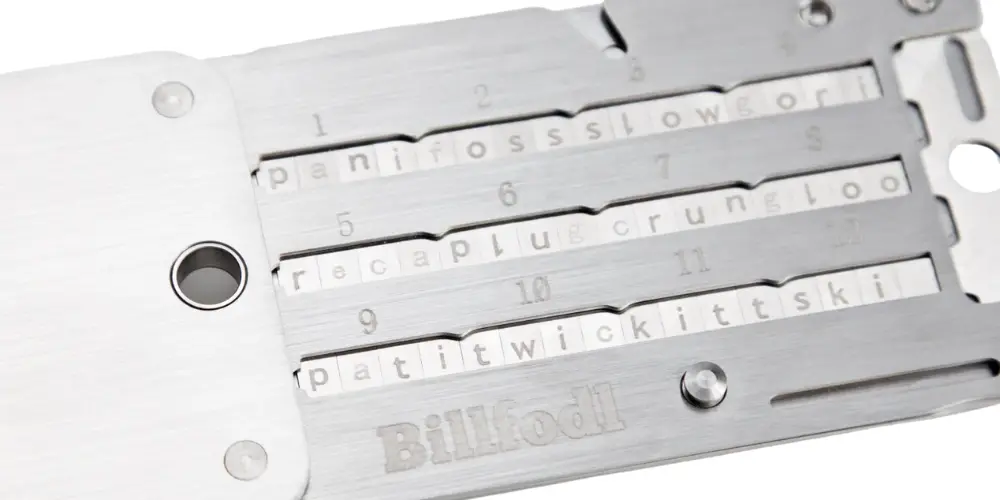
- Preserves your recovery phrase much better than paper and pen solutions
- Reasonably priced
- Slightly bulky design
- Sliding tiles into place can be a clumsy experience
What is a hardware wallet?
A hardware wallet is a physical vault designed to offer safe storage for your cryptocurrency private keys. These specially designed hard drives usually connect to your computer or smartphone via USB and, because you keep them offline, provide cold storage for your coins and tokens.
Hardware wallets contain a range of security features to protect your digital currency keys.
They're protected by a PIN and often include other security measures, such as a screen for viewing transaction details and buttons on the device for manually verifying transactions.
There are essentially two separate parts to a hardware wallet. The first part is a desktop, mobile or web client connected to the internet and performs nearly all the same functions as any ordinary hot wallet.
This software wallet creates the transactions but can't sign them — which is where the second part, the physical hardware wallet that contains your private keys, comes in. The transaction must be sent to your offline hardware wallet, verified by you and signed by the device before it can be completed.

Should I pick a hot or cold wallet?
A hot wallet is any wallet that has an active connection to, or is hosted, on the internet. Hot wallets are more common than cold wallets and are often more user-friendly. Thanks to their connection to the internet, moving funds in and out of these wallets is quick and easy.
Unfortunately, this ease of use also comes with disadvantages, such as making them susceptible to hackers, phishing scams and other vulnerabilities. Examples of hot wallets include those offered by exchanges or web wallets such as MyEtherWallet.
A cold wallet refers to any wallet stored offline. Cold wallet storage can refer to numerous methods, such as creating a paper wallet with a QR code, storing a wallet on an air-gapped computer (disconnected from the internet) or using a hardware wallet.
While considered more secure than a hot wallet, cold wallets are often slow to use, require a physical object and can be damaged in ways hot wallets can't. Hardware wallets are a particular type of cold wallet, popular for their additional security and redundancy features.
Why use a hardware wallet?
Generally speaking, crypto hardware wallets are considered the safest way to store the private keys to your digital assets for the following reasons:
- Private keys stored offline. Unlike browser extensions, mobile and desktop wallets — which are exposed to risks like hacking, malware and phishing scams — hardware wallets store the private keys to your assets offline.
- 12- to 24-word recovery phrase. If you lose your hardware wallet, you can regain access to your private keys using your 12- to 24-word recovery phrase.
- PIN and password protected. Hardware wallets are PIN or password protected for additional security.
"Hardware wallets are arguably the best way to store your cryptocurrency - offering a high-level of security while also giving you full control over your holdings. If you're serious about investing in cryptocurrency, a hardware wallet is a sensible purchase."
How to choose the best hardware wallet
If you've decided that offline storage in a hardware wallet is the best option, the next step is actually choosing a wallet. There are several reputable options available, so make sure you consider the following factors when deciding which one is right for you:
- Security features. How secure is the wallet, and what features does it offer? Is it secured by a PIN? Does it include its own screen? Can you verify transactions by manually pressing buttons? Have there ever been any reported instances of security breaches involving the wallet?
- Ease of use. Consider how easy the wallet is to set up and use. If you don't completely understand the processes involved, there's always the very real risk of losing some or all your funds. With this in mind, make sure the wallet makes it as simple and straightforward as possible to keep track of your crypto holdings.
- Supported coins. Check the fine print to make sure the coins, tokens or NFTs you want to store are actually supported by the wallet you're considering using.
- Supported operating systems. Is the device compatible with the operating system you're running on your computer or smartphone?
- How you actually access your crypto. Hardware wallets usually come with their own native software interface (like Ledger Live or Trezor Suite). Many devices also allow you to interact with your crypto holdings using a third-party wallet — for example, if you were storing Ether (ETH) on a Ledger Nano X, you could manage your tokens using either the Ledger Live app or the third-party wallet MyEtherWallet.
- Back up and restore. Read up on the process required to back up your wallet, and restore your coins if something goes wrong. Is this process easy, and will it increase the level of security for your funds?
- Price. This is an important factor for many as hardware wallets aren't free. Compare the prices of competing wallets, including exchange rates and shipping costs if buying from an overseas retailer, to get a better idea of which option offers the best value.
- Portability. This may not be an important feature for all users, but if you want to transport your wallet with you, consider how easy it would be to carry it around daily.
- Independent reviews. Do your research to find some independent reviews of any wallet you're considering. What do those reviewers list as the wallet's pros and cons? What problems (if any) have they had when using it, and do they recommend it?
By considering these important features, you'll have a much better idea of which hardware wallet is right for you.
Ask the experts: What are the most important features in a crypto wallet, besides security?
"A wallet should have an intuitive and easy-to-use interface, making it accessible to both beginners and experienced users. The ability to store and manage a variety of cryptocurrencies is crucial, as the crypto market consists of numerous digital assets. A good wallet should provide a reliable backup and recovery system to protect against data loss or theft of the wallet's private keys. Access to transaction history and reporting features is essential for tracking your cryptocurrency holdings and activities."
"Interoperability with web3-enabled sites is probably the most important feature after security for crypto wallets today. WalletConnect makes it possible to use a wide range of wallets to interact with web3 sites. Cross-chain compatibility and the ability to do swaps inside the wallet can also make life a lot easier."
"The wallet should be easy to use and navigate. Users should be able to easily send, receive, and store their cryptocurrencies. The wallet should support the cryptocurrencies that users want to use. Multi-signature wallets require multiple signatures to authorise transactions. This makes them more secure than single-signature wallets.Cold storage wallets allow users to store their cryptocurrencies offline. This is the most secure way to store cryptocurrencies, as it protects them from hackers. Some crypto wallets offer additional features, such as staking, lending, and decentralized exchange (DEX) integration. "
Hardware wallet pros and cons
Pros
- Considered to be the most secure way of storing private keys — more so than software or Web3 wallets
- Give you full control of your private keys
- Support a wide range of coins and tokens
- Allow you to recover your coins if your wallet is lost or stolen
Cons
- You'll need to buy one — and prices can run up into the hundreds of dollars
- Not quite as convenient as other wallet options when you need quick access to your crypto
- Not all coins are supported by every wallet
Hardware wallet security tips
Keep the following tips in mind to help ensure the security of your crypto coins and tokens:
- No wallet is 100% secure. If you want to ensure the safety of your funds, the buck stops with you. The most secure wallet in the world is useless unless you properly follow wallet setup or security instructions, so exercise caution at all times.
- Only buy from a reputable seller. Only buy hardware wallets direct from the manufacturer or an authorised reseller since buying a second-hand wallet puts you at risk of hacking and theft.
- Keep private details private. You should never disclose your hardware wallet's secure PIN and your crypto private keys to anyone.
- Don't lose your recovery seed. You need your recovery seed to access your crypto coins if your wallet is lost or stolen, so make sure you write this seed on a piece of paper and keep it safe. Better yet, write it on several pieces of paper and keep them all in separate but secure places. Consider purchasing a recovery phrase backup device like Billfodl for even greater peace of mind.
Risks of using a crypto wallet
When you use a non-custodial crypto wallet, you reduce the risk of a third-party custodian like a crypto exchange going under and taking your funds with it. However, there are still risks to using both software and hardware crypto wallets.
Software wallets are always connected to the internet, and, for that reason, can more easily be hacked. Also, if the code for a software wallet is closed-source, you are placing trust in the creator of that wallet to not extract your private keys and, therefore, gain access to the digital assets you manage via the wallet.
Hardware wallets are generally more secure than software wallets in that they remain disconnected from the internet when they aren’t in use, while some never have to be connected to the internet. However, if you use a hardware wallet that has native software — like a Ledger or Trezor wallet — there is always the risk that your private keys can be extracted through an issue with the underlying software.
For extra safety, it’s best to create a multisignature — or “multisig” — set up in which you use two or more wallets to sign transactions and protect your crypto.
Methodology
To evaluate our 2026 picks for the best crypto hardware wallets, we compared 10+ cold storage wallets on a range of criteria, including the following:
- Crypto and blockchain support. Is it compatible with multiple blockchains and how many coins and tokens are supported?
- Usability. Is the device simple to use and appropriate for beginner crypto investors?
- Security. How is the recovery phrase stored, and how might this impact the security of the wallet?
- Pricing. How much does the hardware wallet cost, and how does it compare to other products on the market?
- Extra features. Does it provide support for NFTs or extra features like staking?
- Mobile management. Can you manage your portfolio from a smartphone?
- Web3 accessibility. Can you access Web3 and decentralised applications (dapps) directly from the device?
Crypto wallets market update: September 2025
Coinbase Wallet has rebranded as Base App to combine wallet functions with social features, trading and gaming.
Frequently asked questions
Sources
Disclaimer: Cryptocurrencies are speculative, complex and involve significant risks – they are highly volatile and sensitive to secondary activity. Performance is unpredictable and past performance is no guarantee of future performance. Consider your own circumstances, and obtain your own advice, before relying on this information. You should also verify the nature of any product or service (including its legal status and relevant regulatory requirements) and consult the relevant Regulators' websites before making any decision. Finder, or the author, may have holdings in the cryptocurrencies discussed.
Ask a question
More guides on Finder
-
Ledger Nano Gen5 review
Ledger’s latest device marks the beginning of the “signing era” but is it worth the upgrade?
-
Trezor Safe 5 review
Trezor's flagship wallet offers a range of security-focused features.
-
NGRAVE ZERO review
Learn about the capabilities, benefits and pitfalls of the NGRAVE ZERO hardware wallet.
-
SafePal S1 review
The SafePal S1 hardware wallet provides added security for the feature-rich SafePal software wallet.
-
Ledger Stax review
Learn how the Ledger Stax stands out compared to previous Ledger hardware wallets.
-
Ledger Nano S Plus review
Learn about the capabilities, benefits and pitfalls of the Ledger Nano S Plus hardware wallet.
-
Ledger Nano X review
See how the Ledger Nano X hardware wallet stacks up when it comes to security, features and price tag.
-
Trezor Model T review
See how the Trezor Model T measures up as a crypto hardware wallet.
-
Trezor One review
See how the Trezor One compares in the world of crypto hardware wallets.


